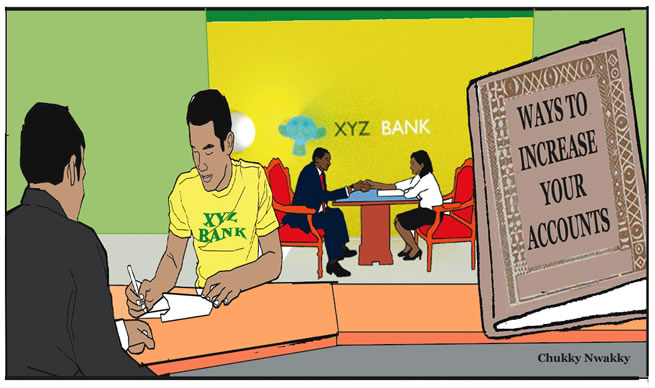
The value of the naira 10 years ago is not the same today. This has to do with the impact of inflation over the years.
Inflation refers to an increase in price over a specified period of time. As a result of inflation, a specific amount of currency will be able to buy less than before, according to Investopedia.
As a developing economy, Nigeria is caught in the crossfire of macroeconomic shocks stemming from the crash of the crude oil market, petrol theft, naira devaluation, the Russian-Ukraine war, insecurity, and other factors.
While the minimum wage is not increasing, the overall price of goods has continued to outpace the average salary increases of recent years.
All of these have impacted the purchasing power of Nigerians. Holding the short end of this stick of hardship is the average Nigerian who bends double under the pressure of food inflation and general inflation.
Nigeria has hit the wall with double-digit inflation of 21.47 per cent. Nigerians also battle with the hike in food inflation to 23.72 per cent.
The banking regulator had introduced measures to tame rising inflation rate in the country. Of recent, the Central Bank of Nigeria has been increasing the Monetary Policy Rate. This makes it more expensive to take out loans.
According to the National Bureau of Statistics, earlier reports by The PUNCH showed that Nigeria’s headline inflation fell from 21.47 per cent in November 2022 to 21.34 per cent in December 2022,.
In 2022, the country’s inflation rate rose from January to November before falling by 0.13 per cent to 21.34 per cent in December. The NBS explained that while headline inflation fell year-on-year, it increased from 1.39 per cent in November 2022 to 1.71 per cent in December 2023.
NBS blamed the nation’s inflation rate in 2022 on the rising cost of importation, currency depreciation, increases in the cost of production, and a foreign exchange crisis.
“The likely factors responsible for the increase in inflation rate month-on-month can be attributed to the sharp increase in demand e.g., increase in energy cost, transportation cost, exchange rate depreciation, etc,” it stated.
Headline inflation in Nigeria rose from 15.60 per cent in January 2022 to 21.34 per cent in December 2022. In its ‘Consumer Price Index (December 2022),’ the NBS said, “In December 2022, the headline inflation rate eased to 21.34 per cent compared to November 2022 headline inflation rate, which was 21.47 per cent.
Therefore, finding the right strategies and investments to hedge against inflation is important.
According to Forbes Advisor, when inflation rises, it can cause headaches for consumers and businesses. For consumers, it can lead to higher prices and decreased purchasing power. For businesses, it can lead to lower profits and increased costs.
It stated, “When inflation is high, you may find that your income doesn’t go as far as it used to. But you can now take steps to hedge against rising prices.”
The Chief Executive Officer of Wealthy Motley, Solafunmi Sosanya, says, “Investment is the only way to beat inflation. I remember when I started investing bamboo, I can tell you that the naira was N360/$.”
She explains that investments are one-way to create wealth and saving was not enough, Sosanya said, “Investing is how you create wealth. Saving is losing because you are just keeping money, especially when it is not in high-value currency.
“You are putting money aside, and you are not making money. Inflation is stealing it. N1m saved in 2010 compared to today as reduced in value. You lost money by putting it in the bank.”
She advises on investments through exchange trade funds, index funds that are easy to track and at lower risks.
Meanwhile, speaking on investments, the Chief Executive Officer of Thrive Financial, Olukayode Olayemi, says financial literacy is important when making any investment decision.
Olayemi says, “While investing in stocks is not rocket science, it’s just about getting adequate financial education. There are courses available for that. There are Youtube videos where you learn these things; there are also pages on social media where you can learn how these things work.”
Olayemi highlighted the need for individuals to take extra caution not to play into the hands of risky bets and play it safe by looking for established blue-chip companies with a track record of performance.
He also highlights some tips on ETFs, saying “It is a basket of stocks that track the index. What an ETF does is that it gives your diversification in one single transaction. And obviously, diversification is one of the core principles of investment. An ETF is a low-cost investment vehicle. Cost eats into returns.”
A Forbes Council member and Chief Executive Officer, Smart Stewards, Sola Adesakin, highlights the dynamics of investing in Exchange Trade Funds.
Adesakin says, “An ETF is a diversification within an asset class. When we talk about investment, there are different aspects. So we have cash and cash equivalent-fixed income.
“Cash and cash equivalents will include money market mutual funds and fixed income. We have another class-equity and real estate as an asset class.
“Out of equity, we now have stocks, individual stocks, and mutual funds have ETFs. Within these asset classes, we have the low-risk and the high-risk.”
According to Adesakin, sometimes stocks are high-risk assets because “you may invest in the stock market and then need your money later. If the market is bearish, you may not see or get what you put there initially.”
Other analysts also describe ETFs as funds that pull together different stocks within a sector.”
Investopedia notes that individuals could plan for inflation by investing in asset classes that tend to outperform the market during inflationary climates.
It states, “With any diversified portfolio, keeping inflation-hedged asset classes on your watch list and striking when you see inflation can help your portfolio thrive when inflation hits.
“Common anti-inflation assets include gold, commodities, various real estate investments, and
Many people have looked to gold as an “alternative currency,” particularly in countries where the native currency is losing value.”
Investing is an effective way to put your money to work and potentially build wealth. Smart investing may allow your money to outpace inflation and increase in value. The greater growth potential of investing is primarily due to the power of compounding and the risk-return tradeoff, according to Wells Fargo Financial Services & Support.
It adds, “Smart savers start by building sufficient emergency savings within a savings account or through investment in a money market account. But after building three to six months of easy-to-access savings, investing in the financial markets offers many potential advantages.”





